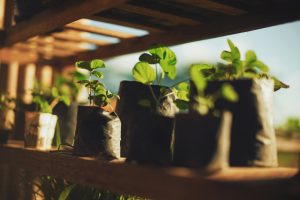Living off-grid presents a unique set of challenges and joys for families seeking self-sufficiency, environmental sustainability, and a simpler lifestyle. Many are increasingly drawn to this way of life, inspired by the allure of reduced utility bills, increased independence, and a closer connection with nature. However, transitioning to an off-grid lifestyle requires meticulous planning and adaptability.
One of the primary challenges of raising a family off-grid is meeting the basic needs of electricity, water, and waste management. Off-grid families rely heavily on alternative energy sources such as solar panels, wind turbines, or hydroelectric systems. This necessitates a significant upfront investment and continuous maintenance to ensure a reliable energy supply. Energy storage solutions, like batteries, are essential to cover days when renewable sources may be insufficient.
Water availability can pose a significant concern, particularly in arid regions. Families often rely on rainwater harvesting systems, wells, or nearby water sources. Implementing and maintaining proper filtration and purification systems is crucial to ensure water safety, especially for children’s health. Managing waste is another vital aspect. Composting toilets and recycling systems help minimize environmental impact, but they require proper usage and regular upkeep.
Education is another complex aspect of off-grid living for families with school-aged children. Many opt for homeschooling or online education platforms. This responsibility demands a dedicated approach from parents, who must balance teaching with other daily tasks. Access to quality educational resources can be restricted by limited or unreliable internet connections, so families often rely on physical books and experiential learning methods.
Healthcare access is another challenge. Remote locations make it difficult to reach medical facilities quickly in case of emergencies. Off-grid families often keep well-stocked first aid kits and must become knowledgeable about basic medical care. Some choose to maintain health insurance and establish a relationship with local healthcare providers for routine checkups and vaccinations.
Despite these challenges, the joys of raising a family off-grid are numerous. This lifestyle offers unparalleled opportunities for family bonding. Working together to maintain the homestead fosters teamwork and resilience in children. Many families report a stronger family unit, with more meaningful interactions free from the distractions of modern technology.
Children raised off-grid often develop a deep appreciation for nature and learn valuable survival skills. They become adept at identifying local plant and animal life, understanding weather patterns, and practicing resource conservation. This hands-on education instills a sense of responsibility and empowerment as they learn to live harmoniously with their surroundings.
Living off-grid also encourages a healthier lifestyle. Many families grow their own food or source it locally, resulting in a diet rich in fresh, organic produce. The physical demands of maintaining an off-grid home and garden also mean that adults and children alike engage in ample physical activity, contributing to overall well-being.
Another joy of off-grid living is the sense of community it can foster. Families often forge strong connections with like-minded neighbors and local communities. This network can provide essential support, sharing resources, knowledge, and labor. Off-grid living fosters values of cooperation and stewardship, which are integral to sustainable living.
Financially, living off-grid can offer long-term savings. By generating their own energy and growing their own food, families can significantly reduce their living expenses. This financial freedom allows parents to spend more time with their children and less time working traditional jobs solely to pay utility bills or accumulated debts.
Furthermore, raising a family off-grid offers a sense of accomplishment and self-reliance. Parents display great pride in teaching their children how to build, repair, and manage a home using traditional skills and modern innovations. This empowerment is a valuable life lesson that children carry into adulthood, instilling in them a profound sense of capability and independence.
In terms of mental health, the off-grid lifestyle often engenders a peaceful environment. The natural settings encourage mindfulness and provide a respite from the constant noise and stress of urban life. Many individuals find their mental health improves, experiencing lower levels of anxiety and depression when immersed in nature and living according to its rhythms.
The off-grid lifestyle also fosters creativity. Families often devise unique solutions for daily challenges, crafting and improvising with available materials. Children and adults alike are encouraged to engage in creative play and hobbies, unburdened by electronic distractions.
Raising a family off-grid can be stressful, and a successful transition requires careful planning and realistic expectations. Prospective off-grid families must be adaptable, resourceful, and willing to learn continuously. They need to anticipate potential challenges and mitigate them with practical solutions and community support.
Off-grid living is not for everyone, as it demands significant lifestyle changes and a departure from many modern conveniences. However, for those willing to embrace the challenges, the rewards can be profoundly fulfilling. Families who successfully navigate the intricacies of off-grid living enjoy strengthened bonds, a deeper connection to the environment, and the satisfaction of a self-sufficient lifestyle. These families pave the way for a sustainable future, setting an example of resilience and ingenuity that inspires others to consider alternative ways of living.



